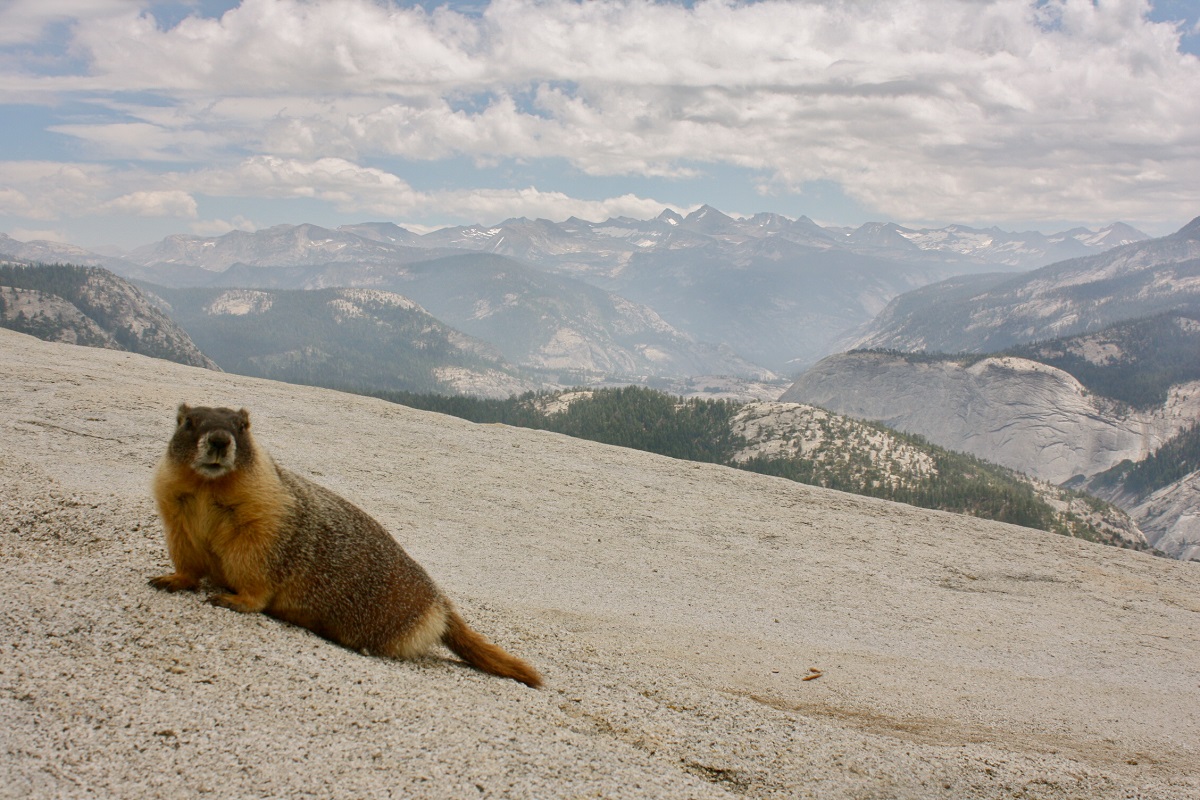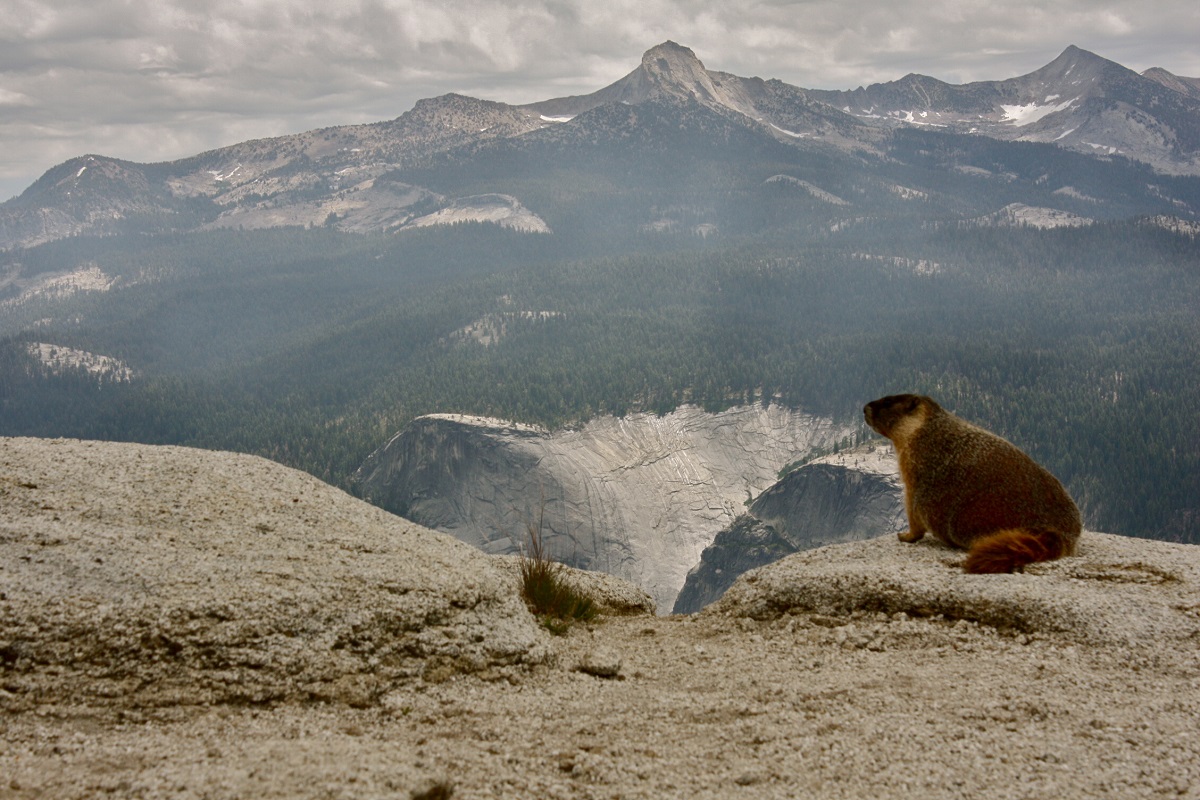In celebration of Groundhog’s Day, we feel it’s only right to take a moment to celebrate Yosemite’s groundhog, the Yellow-Bellied Marmot. We’ve put together some of our favorite Yellow-Bellied Marmot facts here, be sure to check them out!
Yellow-Bellied Marmot Facts:
- Yellow-Bellied Marmots are also known as “Rock Chucks!”
- Marmots are mammals with grizzled brownish fur, a yellow belly, and a whitish spot between the eyes.
- Marmot’s omnivore diets usually consist of grass, leaves, flowers, fruit, grasshoppers, and bird eggs.
- Marmots usually weigh between 5 and 11 pounds when fully grown.
- Marmot weight fluctuates through the year, with a huge gain in weight before hibernation.
- Marmots inhabit Yosemite’s high country, usually at elevations above 6,500 feet.
- Marmots often live in small colonies, which means if you see one, stop hiking, remain quiet, and wait to see some more!
- Marmot colonies consist of groups of about 10 to 20 Yosemite groundhogs.
- Marmots have what is called “harm-polygynous” which means the male defends and provides for 1-4 mates at the same time.
- Marmots choose to dig burrows under rocks because predators are less likely to see their burrow.
- Marmots warn others of predators nearby by emitting a shrill whistle, which is how they get the nickname “Whistle Pig.”
- Marmots hibernate in the winter, remaining in their burrows from September to May.
Spot a Marmot on Your Next Yosemite Adventure
Now that you’re a Yellow-Bellied Marmot pro, you’re probably itching to see one in real life! Join us here at the Evergreen Lodge for a Yosemite adventure during late Spring and Summer months when we regain access to Yosemite High Country. You’ll often see Yosemite’s Groundhog sunbathing on rocks along popular High Country trails, like Mount Hoffmann or Gaylor Lakes. And of course, help us keep Yosemite and it’s wildlife wild by never feeding a marmot, no matter how cute they may look or how much they may beg.
Learn about the other wildlife you may encounter on your Yosemite adventures here.


